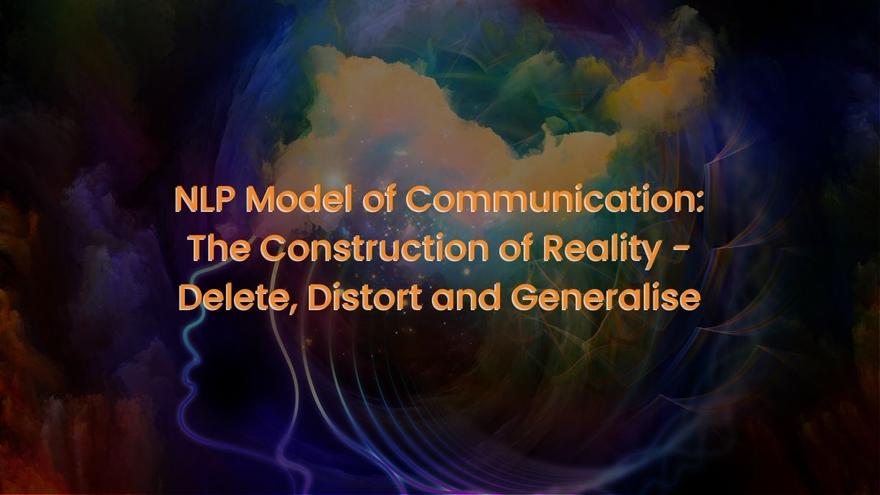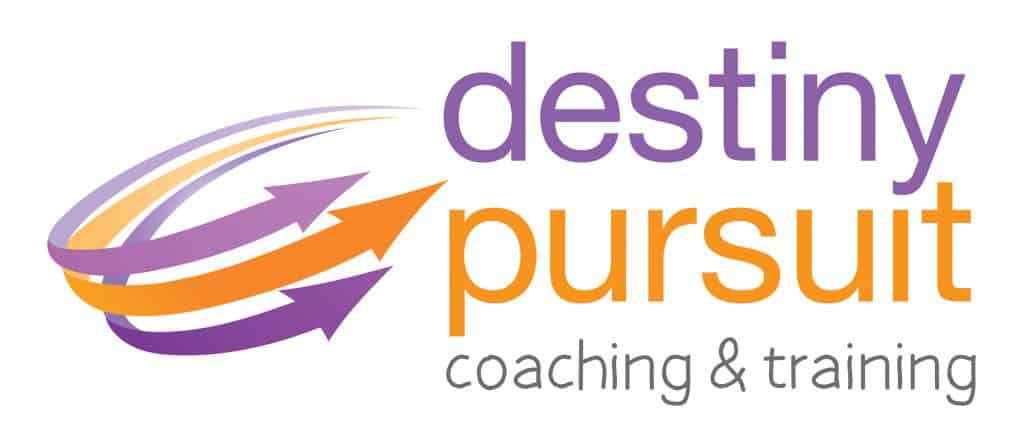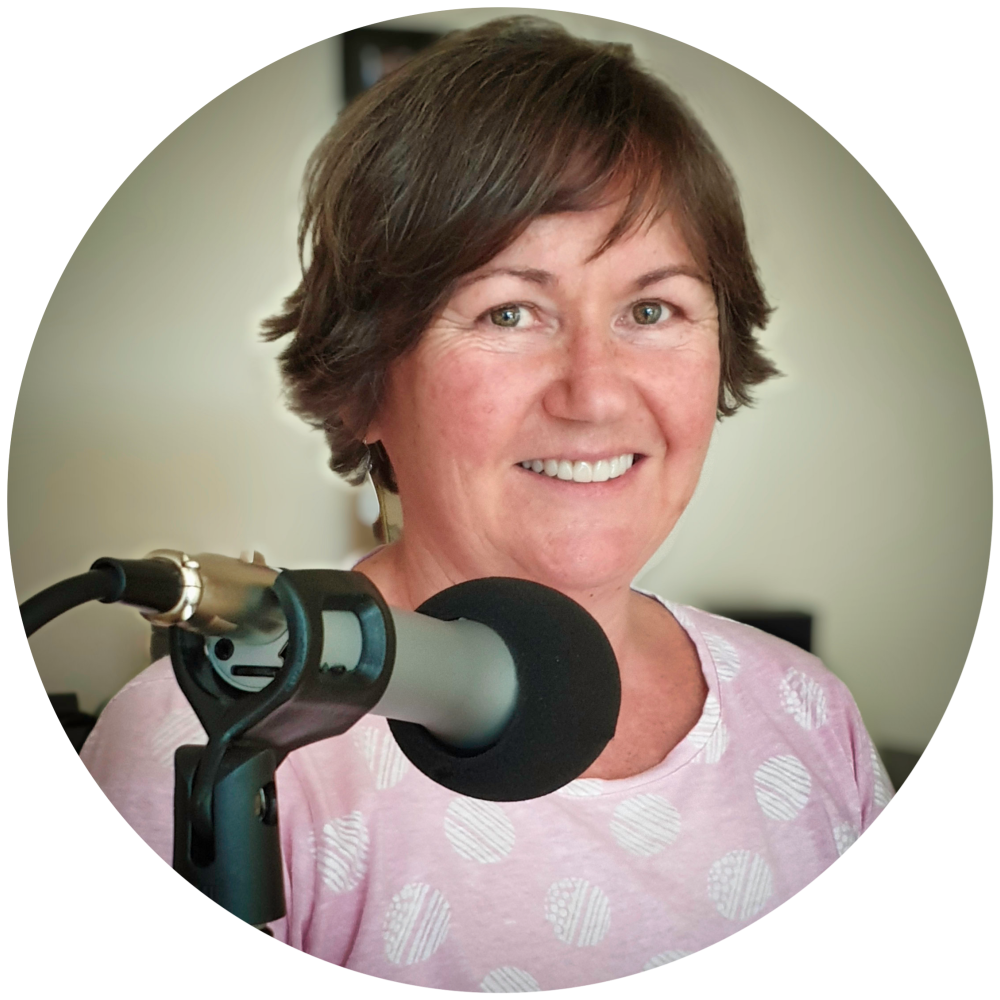The Construction of Reality: Delete, Distort and Generalise - NLP Matters, Episode #039

In the past two episodes, we have begun exploring what NLP has to say about the fascinating workings of the human mind. Learning about how our minds work reveals the structure that underpins how we think, behave, and construct our relationships with others. It means we can discover how we create our reality.
In this episode, we’ll discuss the processes that enable us to selectively filter the information or data that we then use to construct our own experience of reality. We will focus on 3 key processes: deletion, distortion, and generalization.
Listen to the podcast to find out more.
Listen to the Podcast
Here are some key takeaways from this episode:
- At least 2 million ‘bits’ of information per second are available to us in the external environment. The current science tells us that as humans, the most we can take in is around about 130 bits per second out of the more than 2 million bits. All the rest of the information is pretty much deleted from our experience of reality.
- To process this information effectively we delete, distort, or generalise it. These strategies ensure the volume of data is manageable.
- Because there is so much information available, it’s impossible to take note of everything. Thus, we delete information that we pay no attention to at all. We decide it’s not important and it doesn’t matter.
- Distortion is the process of collecting and altering perceptual information so that it becomes something else. Sensory information that is available to us and we turn into what makes sense to us, which then fulfills our expectations or confirms what we already know or have decided.
- Distortion is not necessarily a negative thing. It is integral to our speed of processing information. Distortion is a very important way to be creative and imaginative.
- Distortion allows us to see the world differently. It can confront and challenge us. Sometimes this is resourceful, and sometimes it is not.
- Cognitive bias is our perception of others through labels which has the potential to affect people’s lives, positively and negatively.
- The Pygmalion Effect happens when our expectations of others become a self-fulfilling prophecy.
- Distortion can also be a way to influence or manipulate people to change their views and perceptions. Meanings can be changed over time, and the important thing is to notice how useful and powerful distortion is because if we don’t pay attention we can be quite vulnerable to having our perceptions of reality changed even without our conscious awareness!
- Generalizing is how we create categories to classify information. We do this because it is a very economical way to help us make sense of the world.
- Generalisations allow us to make predictions about how the world works, and this frees up our cognitive capacity so that we can then focus on things like what is new or different in our environment.
- Whilst we can agree that our capacity to form generalisations is useful and necessary, it is important to also acknowledge it can cause us problems. When our drive to generalise is very strong we distort reality in order to maintain our assumptions and achieve that strong desire we all have which is to be right!
- Refusing to accept that our generalisations are not always right, often results in perpetuating inequality with all its pain and suffering. On the other hand, being curious about the reality of others means we can consider – how are these generalisations working.
Whilst it is important to understand that these three processes – deletion, distortion, and generalisation, have and continue to be really useful tools in enabling us to manage incredible amounts of information in very efficient ways – if we continue to believe our unique version of reality is the only right one, it is likely that this rigidity will have unpleasant consequences for the quality of our lives.
Once we do understand our active role in creating what we call reality, hopefully, we can also appreciate that it is possible that although my subjective experience or internal representation of reality and yours are totally different, perhaps we are both right.
In our next episode, we’ll continue the discovery of just how subjective-objective reality is as we continue to explore the fascinating subject of the human mind. We’ll look at the impact of our internal representation on our state – our emotions – and vice-versa.
Listen to the Podcast
Joanne Clark
Joanne Clark is an Internationally accredited Master Trainer of NLP who has been delivering NLP training since 2011. Being on her feet in front of training rooms is where Jo loves to be and her passion for inclusive and immersive training that delivers outstanding learning outcomes is apparent to everyone in her training rooms. On average Jo delivers 140 days of training per year in addition to online webinars, guest speaker events and group coaching.
“NLP is at the core of all my training and coaching, it is at the core of who I am, how I interact and connect with people. I am absolutely passionate about spreading the NLP tools across the planet as I endeavour to support Robert Dilts’s vision of Creating a world to which people want to belong.” Joanne Clark
Certified Master Trainer of NLP; Master Practitioner NLP, Hypnotherapy & Matrix Therapies; Performance Coach; Cert IV Coaching; Advanced Practitioner in Coaching; Cert IV in Business; BA(Hons); Majors in Sociology and Psychology; Parent Education Leadership Training (PELT) Certificate; Mother of four children; Private Pilot (PPL); Diploma in Life Coaching


0 comments
Leave a comment
Please log in or register to post a comment